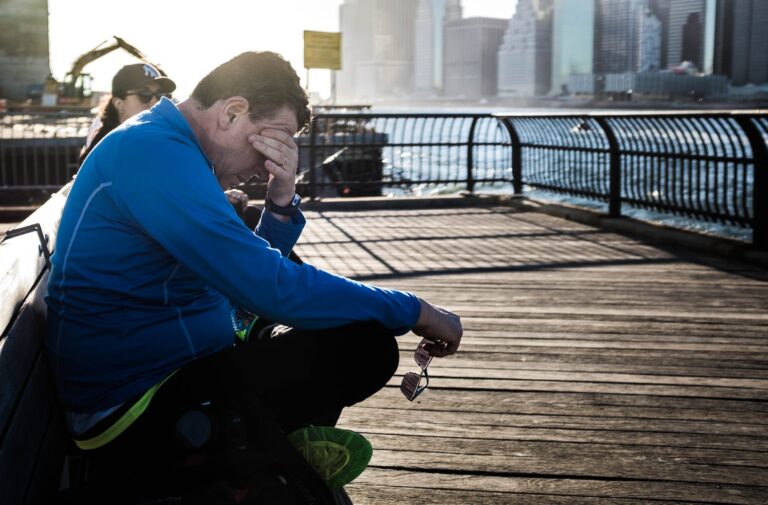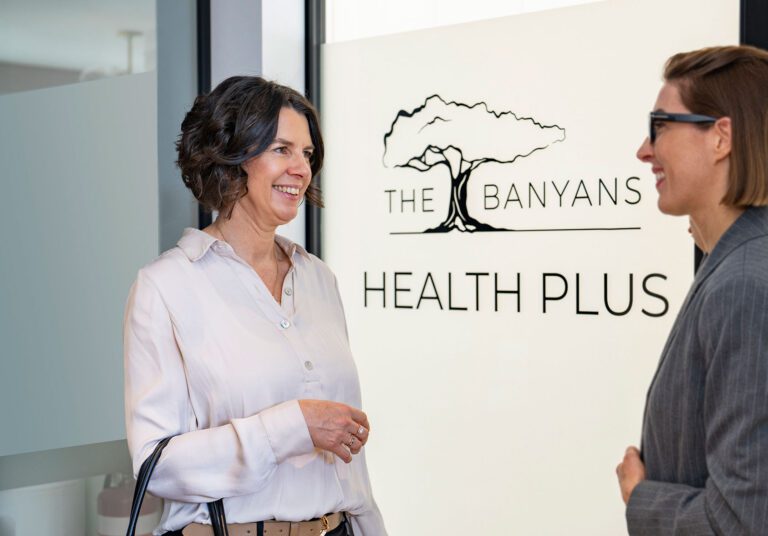
For years, alcohol addiction has been viewed as a character flaw or moral failing. Advancements in science today show it is far more complicated. Learn about alcohol addiction and the benefits of an integrated, private rehab program for treatment.
Read this article if you’re:
- Curious about dependency or substance misuse and the experience of alcohol addiction;
- Interested in the various types of psychological therapy available for individuals who misuse alcohol;
- Thinking that you or someone you love may be experiencing an alcohol addiction or dependency, or
- Researching private rehab and residential treatment options for alcohol addiction.
The term ‘addiction’ refers to any repeated behaviour that causes harm or interferes with everyday life. There are many different expressions of addiction, including:
- Substance misuses such as alcohol, nicotine, prescription medication or illicit drugs
- Food and overeating
- Gambling
- Shopping or compulsive purchases
- Sex and pornography
- Exercise and gaming
This short video offers a clear and easy to understand explanation of addiction:
What is Alcohol Addiction?
With so many people experiencing different expressions of addiction, clinicians characterise alcohol addiction as being based on either:
- A physical dependency
- A psychological dependency.
Sometimes, a person may have both a physical and psychological dependency.
Physical dependency refers to the body’s dependence on the substance to function normally. Often, physical dependence develops after prolonged use of a substance like alcohol, prescription medication or illicit drugs. Psychological dependency is relying on alcohol to cope with emotional or mental challenges. We’ll dive into both in more detail in the following few sections.
Regardless of the characterisation of alcohol addiction, it should always be taken seriously and treated carefully with thorough professional attention.
Addiction With Alcohol: A Physical Dependency

Physical dependence on alcohol shifts your body’s sense of ‘normal’.
Our bodies can quickly mitigate disruption to our physical and internal state. This natural ability to maintain equilibrium – or ‘keep things the same’ – is called homeostasis.
Substances like alcohol, sugar, prescription medication, nicotine or illicit drugs change this internal state of ‘evenness’ in our bodies. When the body is regularly exposed to substances for a prolonged time, it creates a new equilibrium. Your body has adapted to the presence of these substances and the effects they cause.
This is one reason people experience a decreased impact of a substance over time. This can drive people to require more alcohol to have the same physical effect. Clinicians refer to this as physical dependence or addiction.
Do I Have a Physical Dependence On Alcohol?
Identifying physical alcohol dependence can be the first step to acknowledging that you have an addiction with alcohol.
If you experience any of the following symptoms, it’s worth discussing your alcohol usage with a medical professional:
- I need to drink more alcohol than I used to for it to have an impact.
- I (or others) have noticed changes to my eating habit, sleeping pattern or weight.
- I notice that I feel unwell if I do not consume alcohol (e.g. get a headache, my heart races, or I feel shaky).
- I often experience a strong physical desire to consume alcohol, similar to the need to drink water while exercising.
Does this sound like you? If so, seeking help sooner rather than later helps increase your likelihood of effective recovery and success in a private treatment program for alcohol addiction.
Warning: going cold turkey is not safe for those with alcohol addiction
Depending on the level of regular intake, the body can respond poorly to a sudden absence of the substance in your system. At best, this may be uncomfortable. But in some cases may be fatal.
This short video explains why alcohol detox is a critical part of your recovery, especially if you have a physical dependency on alcohol:
If necessary, a private rehabilitation program at The Banyans can incorporate a medically assisted detox at one of Brisbane’s private hospitals. This detox will ensure you arrive for your residential program safely.
Addiction With Alcohol: Psychological Dependency
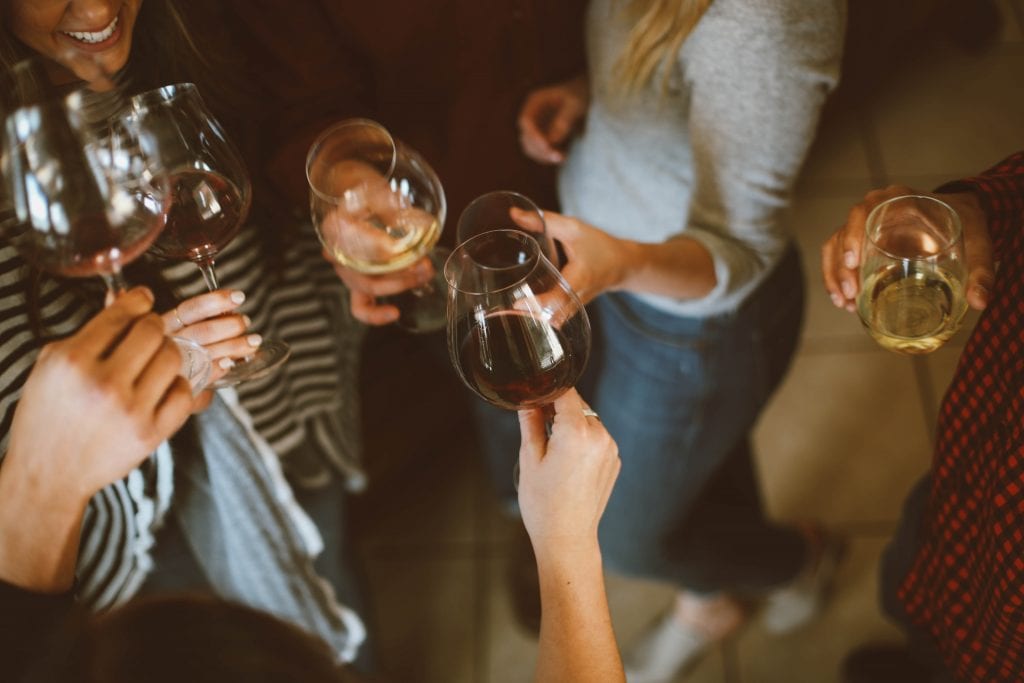
A psychological dependence occurs when the alcohol addiction comes from the mind and not the body.
Psychological dependence typically develops when we drink alcohol regularly to feel happy or relaxed. In other situations, we may be seeking an escape from unpleasant emotions like anxiety, trauma, hopelessness, grief, or stress.
Our brains are powerful, and so are our emotions. Psychological dependency on alcohol can create unpleasant withdrawal symptoms. These may include irritability, fatigue or insomnia and strong cravings.
Do I Have a Psychological Dependence on Alcohol?
Each individual will have their own reasons for turning to alcohol when attempting to deal with personal or emotional issues. If you feel that you are over-relying on alcohol to handle stressful situations or challenging emotions, then you may have a psychological dependence that is creating an addiction with alcohol.
You may have a psychological dependence on alcohol if:
- You rely on alcohol to relax, sleep or have a good time.
- Your alcohol use is causing damage to relationships with family and close friends.
- The effects of excessive alcohol consumption have caused disruption to your work or education. This could be via hangover effects, the pursuit of alcohol, or absenteeism.
- You experience guilt about the amount of alcohol you consume or how you behave when under the influence.
- When you do not consume alcohol, you feel anxious, angry or depressed.
- You have lost interest in the activities or people that used to bring you joy.
If you answered yes to any of the above, you may benefit from seeking help. At The Banyans, private rehabilitation programs for alcohol addiction can help you manage and overcome these psychological dependencies.
For more information about how The Banyans may be able to help you, don’t hesitate to contact our team.
How Do People Become Addicted to Alcohol?
There are many reasons why people may begin using substances like alcohol. Often, alcohol provides an overwhelming sense of pleasure or escape. The desire for these feelings may drive us to continue misusing alcohol despite the negative consequences it can cause.
Below we outline some of the most common reasons people become addicted to alcohol:
Alcohol Makes Us Feel Good
Research has shown alcohol can signal the release of endorphins, or ‘feel good’ chemicals in our brain. These endorphins help people ‘loosen up’ and feel more confident. When people associate these positive feelings with alcohol, it can lead to them continuing to drink in order to achieve them and get the ‘happy buzz’.
The same study suggests people who release more alcohol-induced endorphins also tend to drink more regularly compared to people who produce fewer. This suggests alcohol has inherent addictive effects on the human body.
Alcohol Numbs Negative Emotions
Similarly, alcohol can make us feel better by having a depressant or numbing effect. Some people engage in regular alcohol consumption as a regular method of avoiding unpleasant emotions like anxiety, guilt, boredom, loneliness or stress.
Many people who attend private rehab for alcoholism are also experiencing mental health concerns, like depression or anxiety. In this case, individuals may be using alcohol, drugs or prescription medication to self-medicate the symptoms of their mental health problems. They may be trying to cope with negative or difficult emotions or temporarily lift their mood.
Unfortunately, substance use can increase the risk of developing a mental illness like depression, anxiety or dementia. It is also known to worsen the symptoms of some mental health conditions.
Our personalised, dual diagnosis programs mean that you can receive treatment for both addiction and emotional or mental health concerns while you here at The Banyans.
Family History or Genetic Disposition
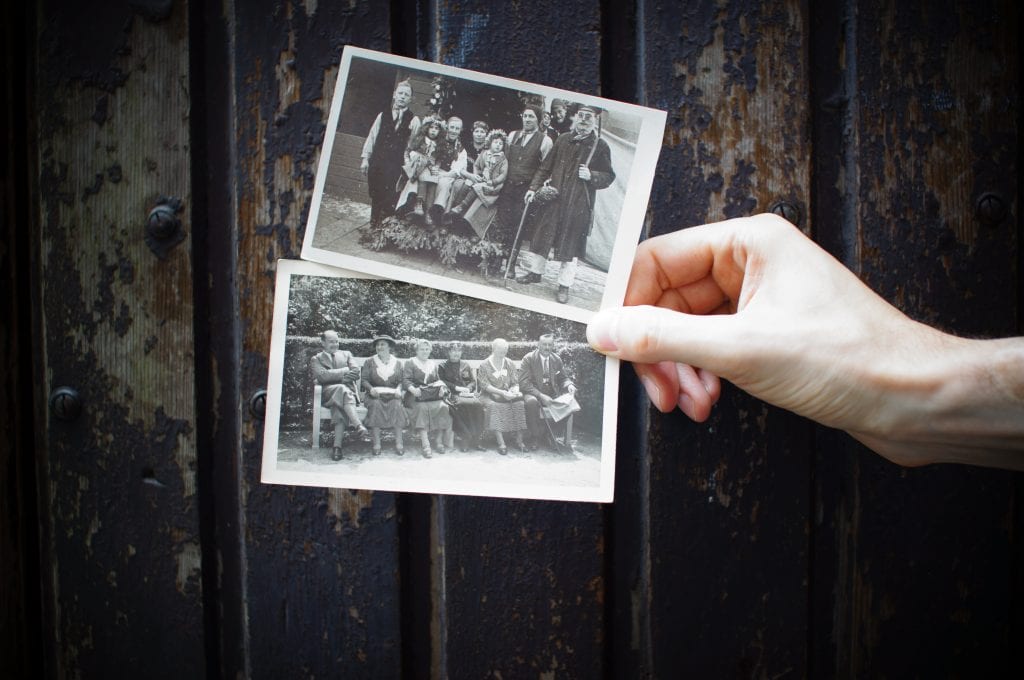
There has been a lot of research into whether addiction is due to our genetics or environment.
Twin studies indicate that it is likely both – with 40% to 60% of an individual’s risk of developing an alcohol addiction coming from our genetics. The remainder of the risk factor comes from our environment. This could be the attitude to alcohol in our home growing up and our personal experiences in life.
Withdrawal Symptoms Make It Difficult to Change
If you have developed a physical dependency on alcohol, stopping drinking can lead to many unpleasant physical sensations and withdrawal symptoms.
People can become stuck in a cycle of addiction with alcohol, and when they try to stop, their withdrawal symptoms lead them to drink again. People often think they can just ‘drink a little’ to take the edge off of these symptoms and soon find they are caught back up in their addiction once more.
Addiction With Alcohol Has Become Habitual

Addiction treatment programs used to say that willpower was enough to break the pattern of destructive alcohol use. However, we now recognise differences in the cognitive pathways for voluntary and habitual behaviour. This implies that there is more at play than self-control.
It has been shown that repeated exposure to a substance builds stronger cognitive pathways. These stronger pathways become like a well-walked trail that guides you to seek the addictive substance or activity.
For some people, drinking alcohol has become a regular and expected activity. Perhaps we have a group of friends that we always drink excessively or a time of day marked by a bottle of wine.
Drinking alcohol can become a part of our daily life, and it may not cross our minds that it could significantly damage our relationships and physical and/or mental health.
It is important to note that these pathways are also critical to our success in recovery. To learn more about how our versatile brain benefits addiction recovery, click here.
Change is Challenging
Overcoming alcohol addiction is possible, but it takes time and can be a challenging process.
If you are drinking to avoid your feelings, you may be afraid of feeling and working through them. With the aid of our treatment programs, you may need to take responsibility for some of the consequences of your alcohol misuse. Recovery requires vulnerability, self-insight and accepting help – three things many people feel uncomfortable doing.
Perhaps you have tried a rehabilitation program before and experienced a relapse. Although relapse is often a part of the recovery journey, it’s natural to feel discouraged and disheartened.
An individual treatment program at The Banyans ensures you are well-supported throughout your journey. Our caring team will walk you through your intake to your post-residential support. We ensure you never feel alone and receive the highest quality treatment for alcohol addiction.
Addiction With Alcohol Has Created Unautomatic, Unconscious Responses
The human brain has an incredible capacity to protect our consciousness from thoughts and memories that are significantly distressing. However, these memories are still carried deep in the unconscious brain until they are properly processed and relieved. We may behave automatically when something in the present activates these ‘pressure points’. This often keeps us in a detrimental cycle of pain.
The longer these memories are stored in the deep parts of our brains, the greater underlying distress they can cause, and the more mental distortions can be created. Without realising it, we may be seeking alcohol as a way to cope with the emotional triggers deep in our unconscious memory.
How Addiction With Alcohol Hijacks Your Brain
Decades of neuroscience research have gone into alcohol addiction and dependency. As technology has advanced, we have a new understanding of what researchers refer to as the Pleasure Principle. It’s believed this concept plays a key role in learning, memory and addiction.
Drinking alcohol can become a part of our daily life, and it may not cross our minds that it could be doing great damage to our relationships and physical and/or mental health.
It is important to note that these pathways also critical to our success in recovery! To learn more about how our versatile brain benefits addiction recovery, click here.
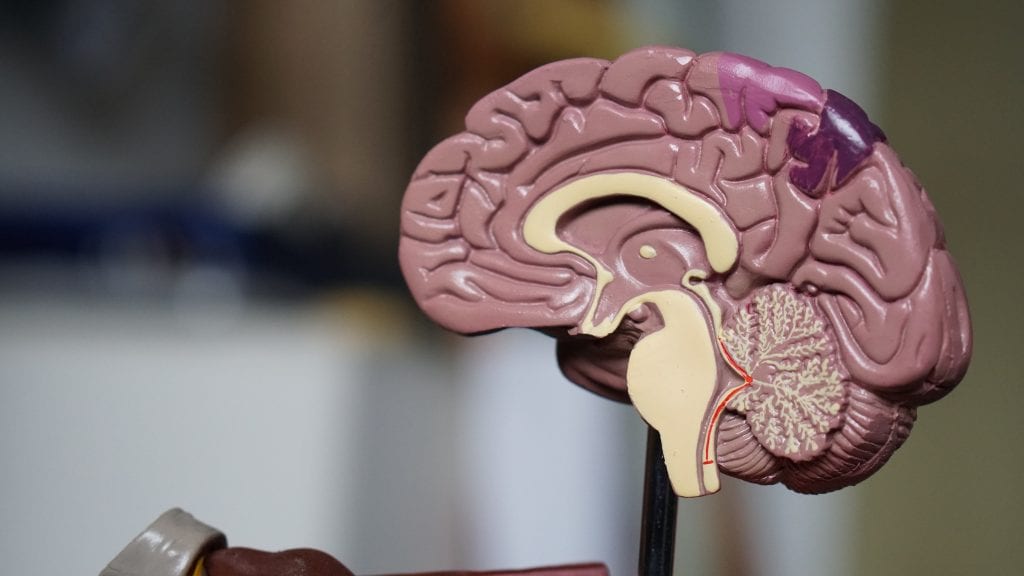
Understanding Alcohol Addiction & The Pleasure Principle
When we activate the pleasure response in our brain, we experience a dramatic surge of the neurochemical dopamine.
Historically, our brains release dopamine – the pleasure chemical – as a reward for exerting time and effort to obtain something beneficial for survival. Potentially, this could be hunting, mating, or creating fire to maintain our body temperature.
The idea is that if we are rewarded powerfully, we will do it again despite the effort and time it took us to achieve the goal. It seems that the process of learning and memory also utilises the same response.
When we engage with substances like alcohol, we receive a powerful surge of dopamine or pleasure without exerting much time or effort.
Perhaps the alcohol makes us feel happy or removes an unpleasant emotion that makes us uncomfortable – either way, our brains have been rewarded, and we are motivated to engage in the activity again.
Breaking the Circuit: An Integrated Therapeutic Approach to Alcohol Addiction

Scientists previously believed abstinence was achievable through greater willpower. However, we now understand that addiction has a more complex effect on our brains. Therefore, successful rehabilitation for alcohol addiction needs integrated therapies.
At The Banyans, our private rehabilitation programs address underlying contributing factors to addiction and equip you to better manage your psychological dependency on alcohol. Below we discuss some of the effective, proven therapeutic approaches we utilise at our retreats:
Cognitive Behavioural Therapy
Cognitive behavioural therapy (CBT) is a commonly employed psychological therapy for individuals experiencing alcohol addiction. Developed to prevent relapse, CBT focuses on maladaptive behavioural patterns or nonconstructive responses.
CBT for addiction with alcohol aims to identify and correct problematic behaviours by anticipating likely problems and working through potential mitigation strategies. It explores the consequences of various behavioural choices and helps develop skills for self-monitoring and self-control.
Dialectal Behaviour Therapy
Dialectal behaviour therapy (DBT) is a psychological therapy used to help treat guests who may find emotional recognition and expression difficult. This therapy allows guests accept unpleasant thoughts and feelings, encouraging them to overcome the urge to turn to alcohol to escape emotional discomfort.
This therapy focuses mainly on strategies and techniques for relaxation and healthy distraction. This helps tolerate self-destructive thoughts and encourage positive lifestyle change, free from addiction with alcohol
Brainspotting
Brainspotting is a research-based type of somatic experiential therapy. With a trained therapist, guests are guided to find a ‘brainspot’ – a specific eye position that elicits a powerful emotional response. This short video helps explain it.
Brainspotting therapy is based on the idea that our brain subconsciously holds unpleasant memories until they are properly processed. Brainspotting allows individuals to process the powerful emotions associated with their subconscious memories.
These powerful emotions indicate that the source of the emotion has been activated. This source could be an automatic and unrecognised driver of addiction. Brainspotting can be a crucial step in helping guests become unstuck’ from their destructive patterns and prevent relapse.
Brainspotting can be a crucial step in helping guests become “unstuck” from their destructive patterns and prevent relapse.
At The Banyans, our private, one-on-one programs focus on the deep underlying causes of your addiction with alcohol. Brainspotting is a unique therapy approach that helps bring those unconscious memories to light. By doing so, you can move forward without alcohol addiction and dependency.
With the help of our degree-qualified, certified brainspotting psychologists, you can incorporate this powerful treatment approach for alcohol addiction into your tailored program.
To learn more about brainspotting, watch this short video by Dr David Grant, the innovator of brainspotting therapy.
Overcome Addiction With Alcohol With Tailored Support at The Banyans
The Banyans Health and Wellness offers a private treatment program for alcohol addiction and dependency. Our rehab programs for addiction and dependency incorporate a variety of robust treatment modalities to ensure you receive holistic and comprehensive care.
Benefit from effective treatment and one-on-one therapy to gain measurable outcomes and freedom from your destructive patterns.
Call our expert team any time on 1300 226 926 for a confidential discussion, or submit an online enquiry below.


